Abstract
The undermining effect of extrinsic reward on intrinsic motivation remains unproven. The key unresolved issues are construct invalidity (all four definitions are unproved and two are illogical); measurement unreliability (the free-choice measure requires unreliable, subjective judgments to infer intrinsic motivation); inadequate experimental controls (negative affect and novelty, not cognitive evaluation, may explain “undermining” effects); and biased metareviews (studies with possible floor effects excluded, but those with possible ceiling effects included). Perhaps the greatest error with the undermining theory, however, is that it does not adequately recognize the multifaceted nature of intrinsic motivation (Reiss, 2004a). Advice to limit the use of applied behavior analysis based on “hidden” undermining effects is ideologically inspired and is unsupported by credible scientific evidence.
Keywords: intrinsic motivation, cognitive evaluation theory
Full text
PDF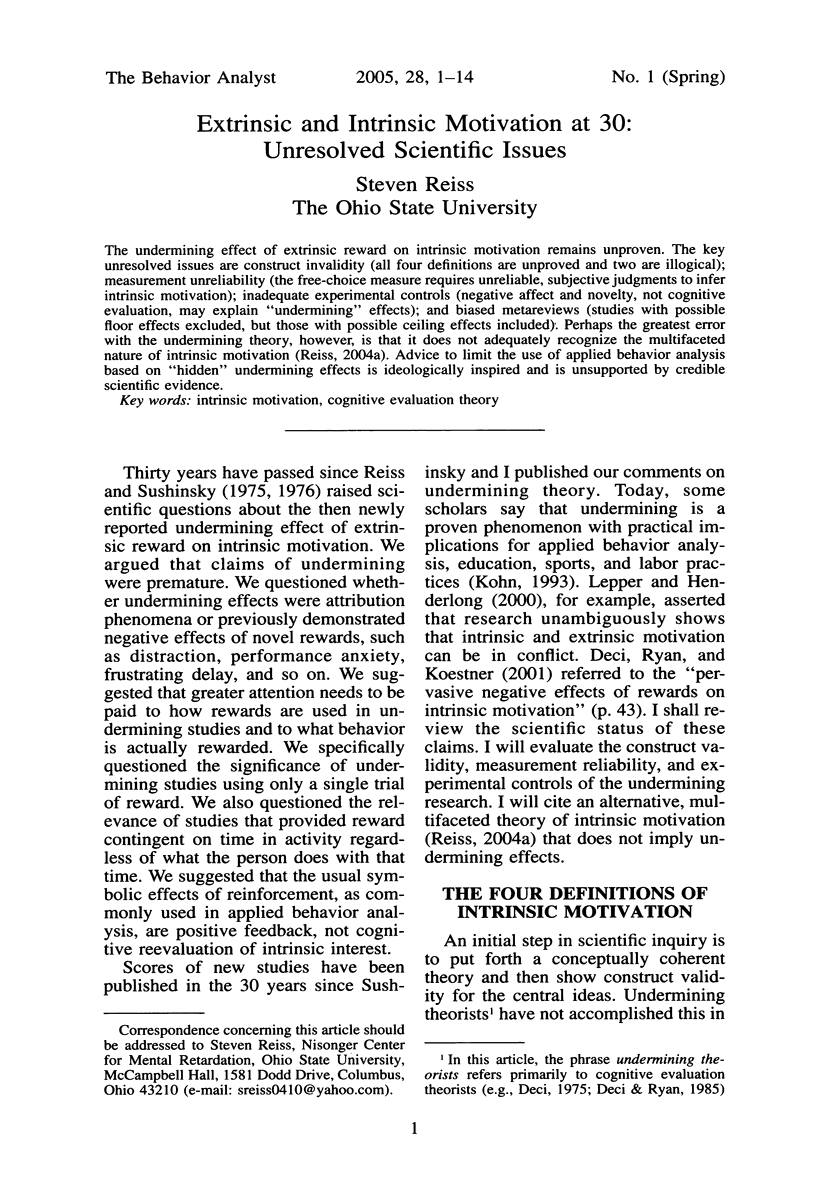
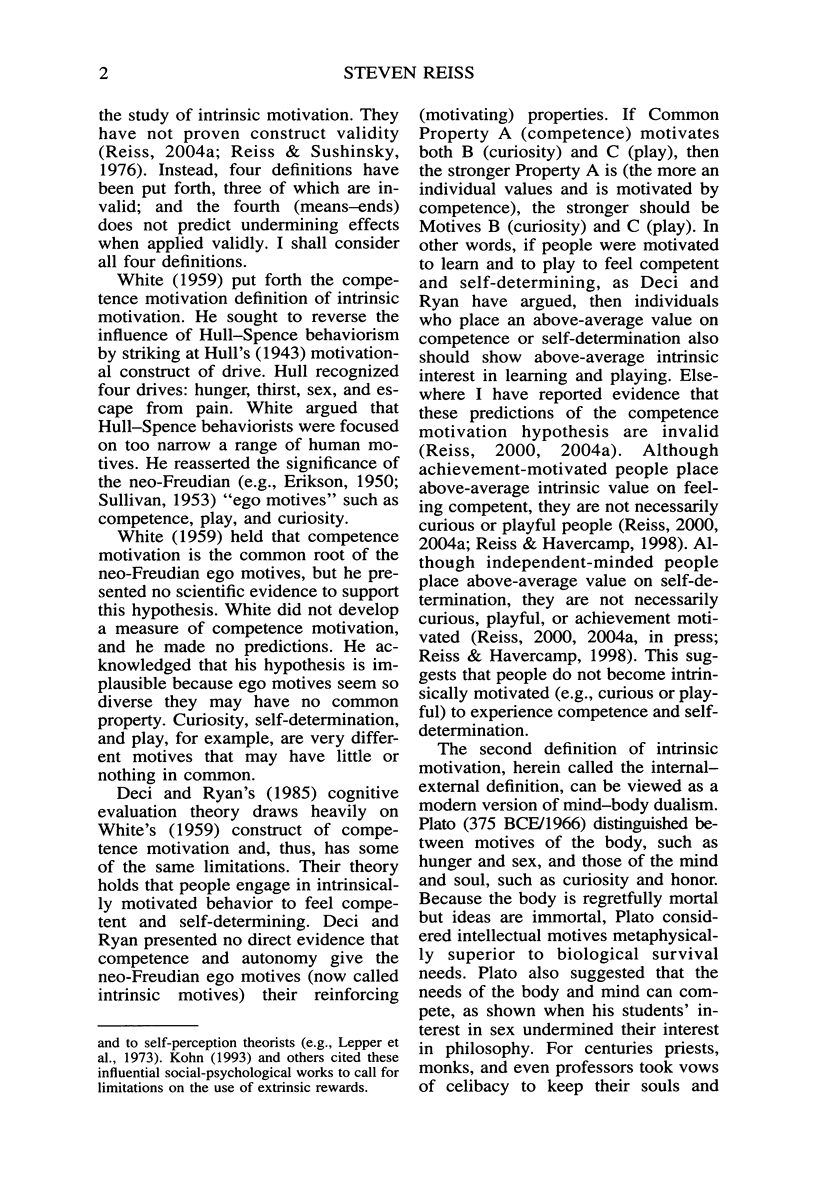
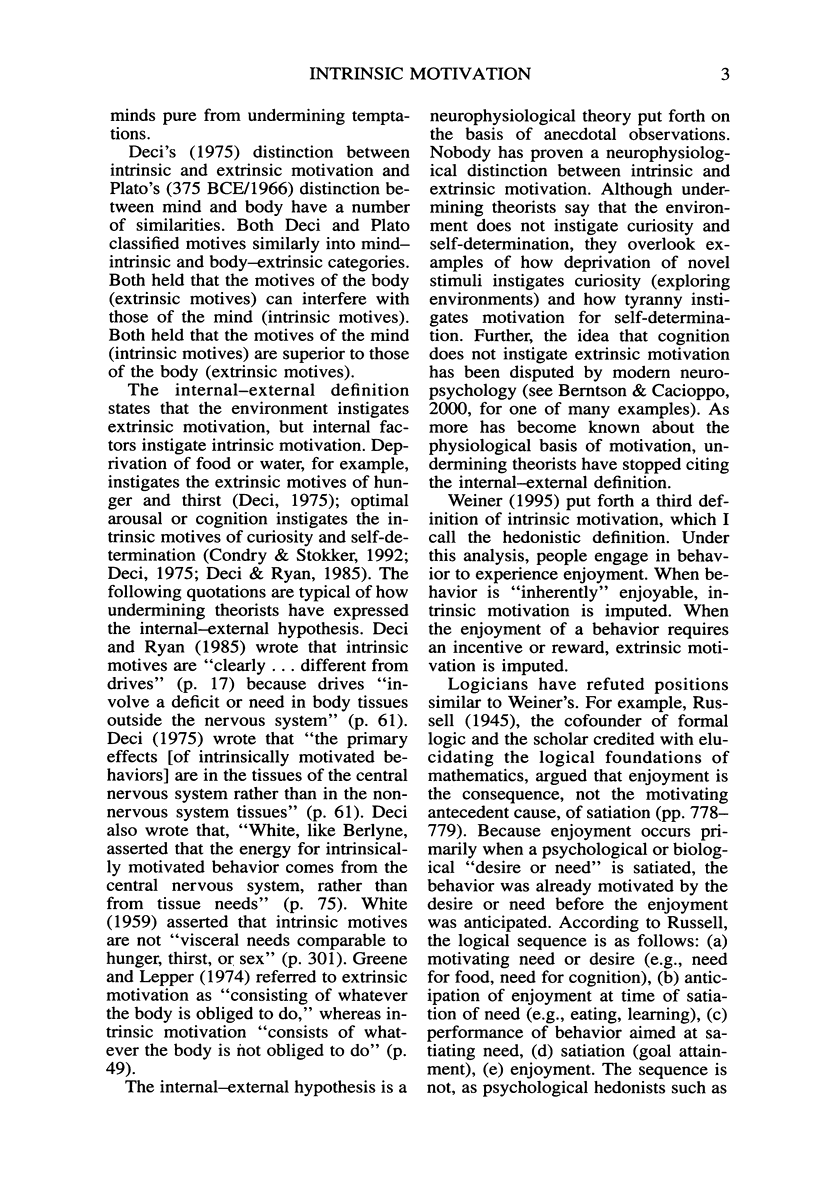
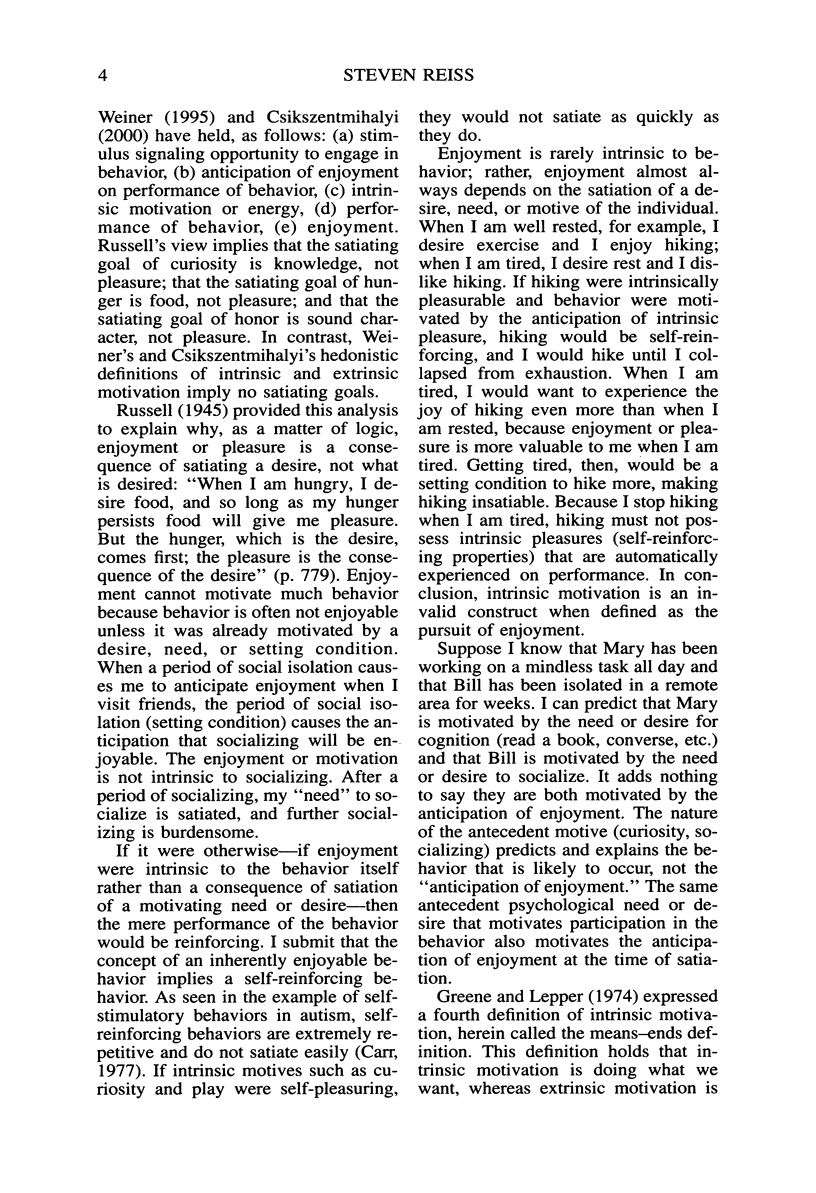
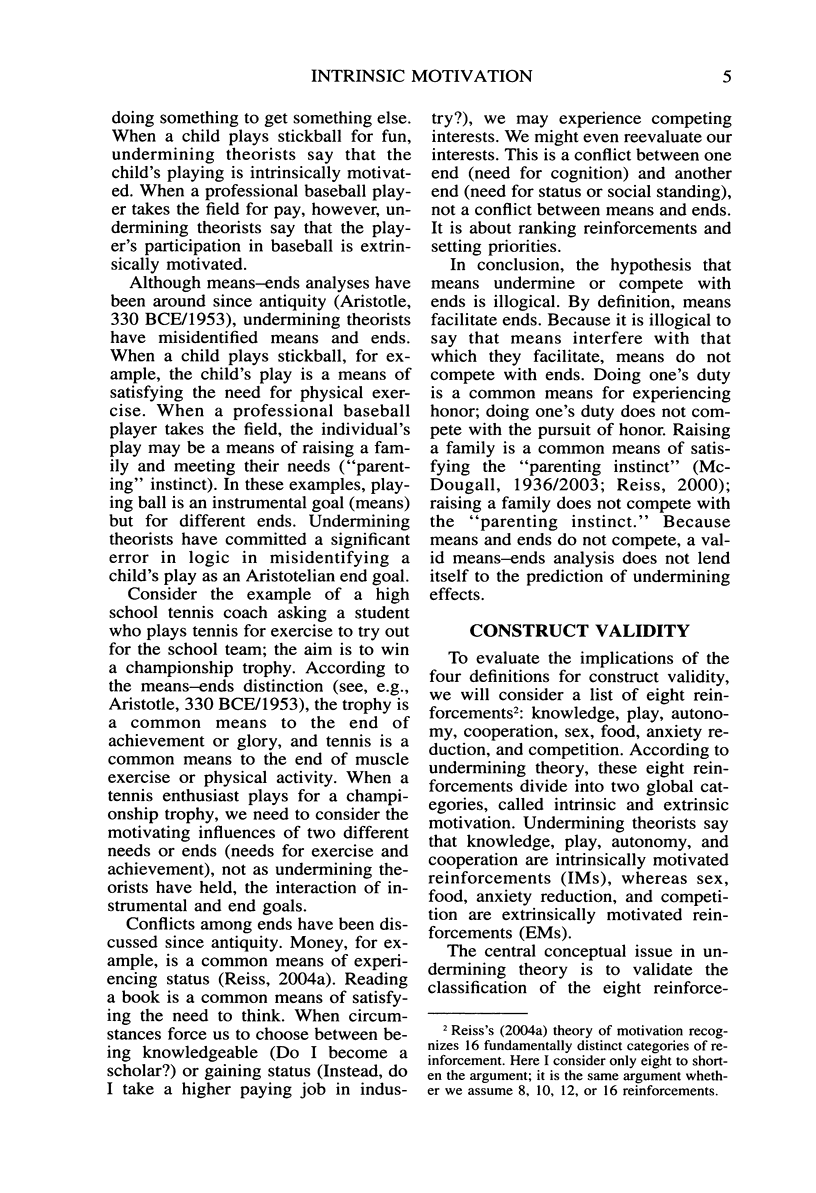
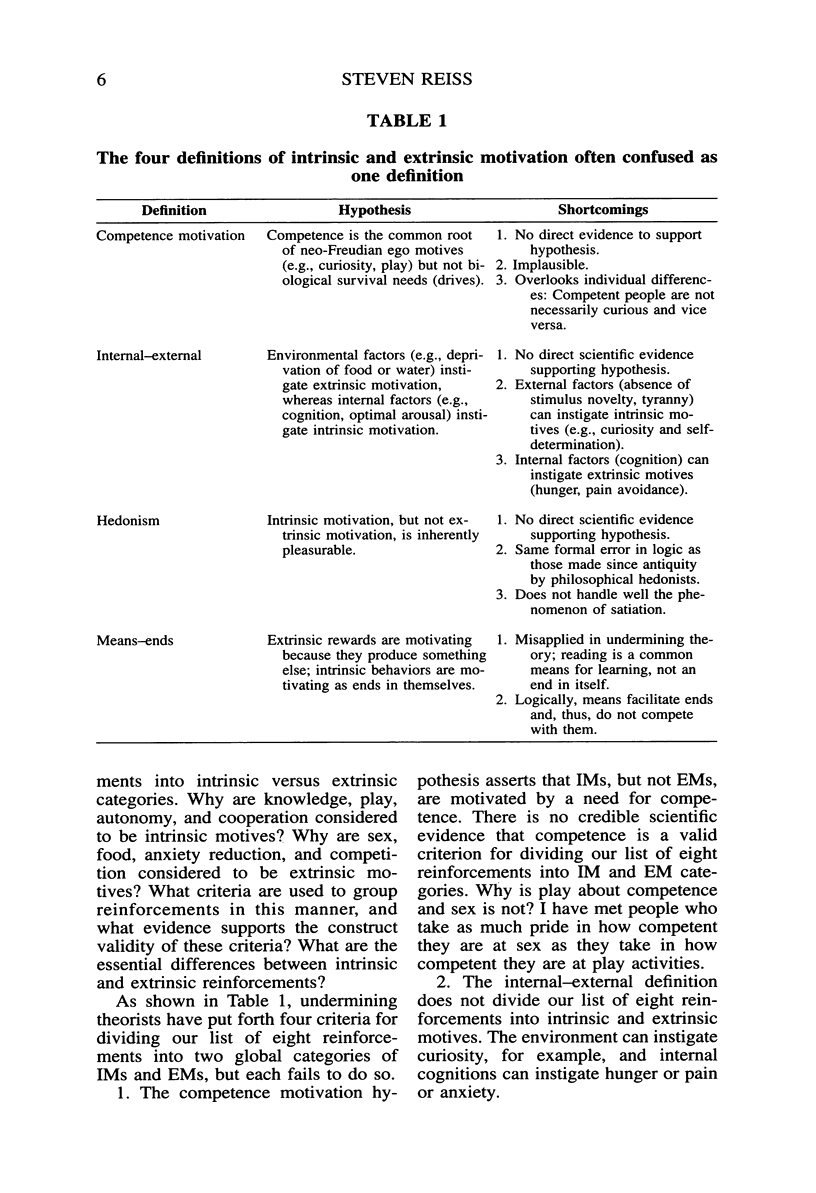
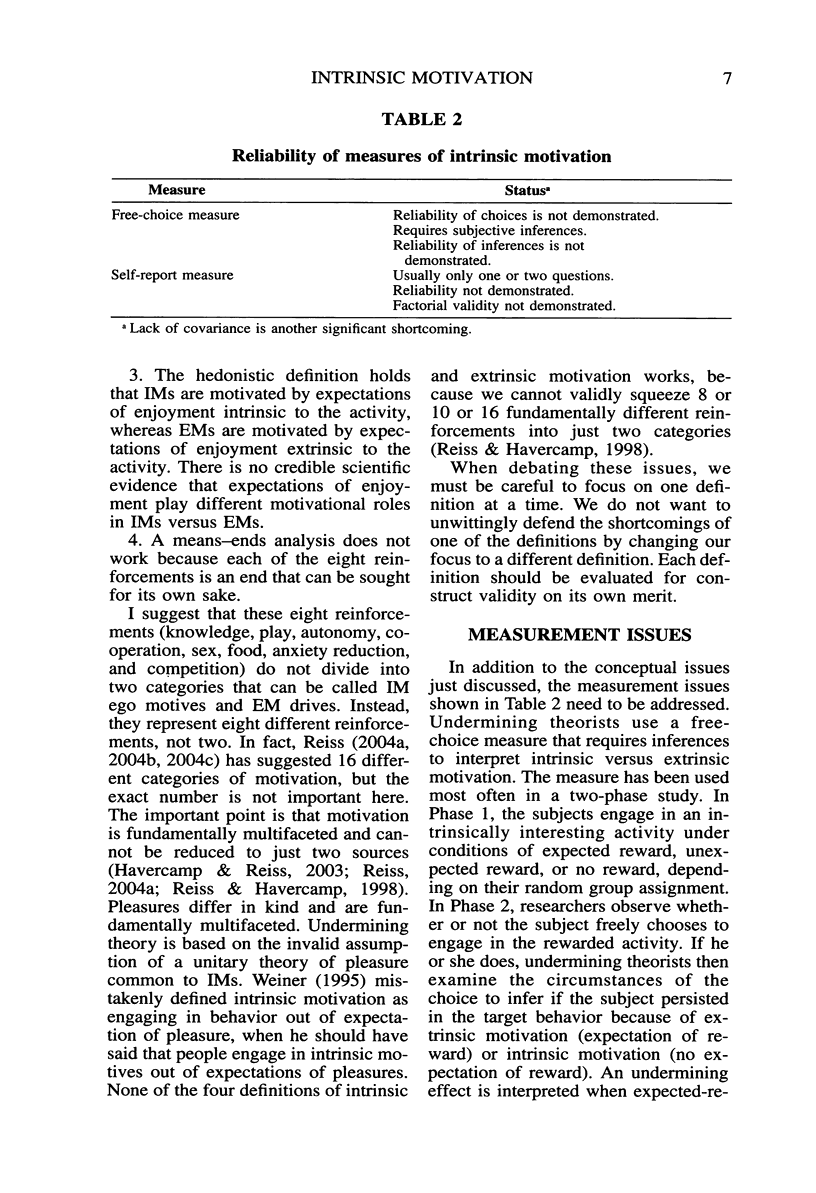
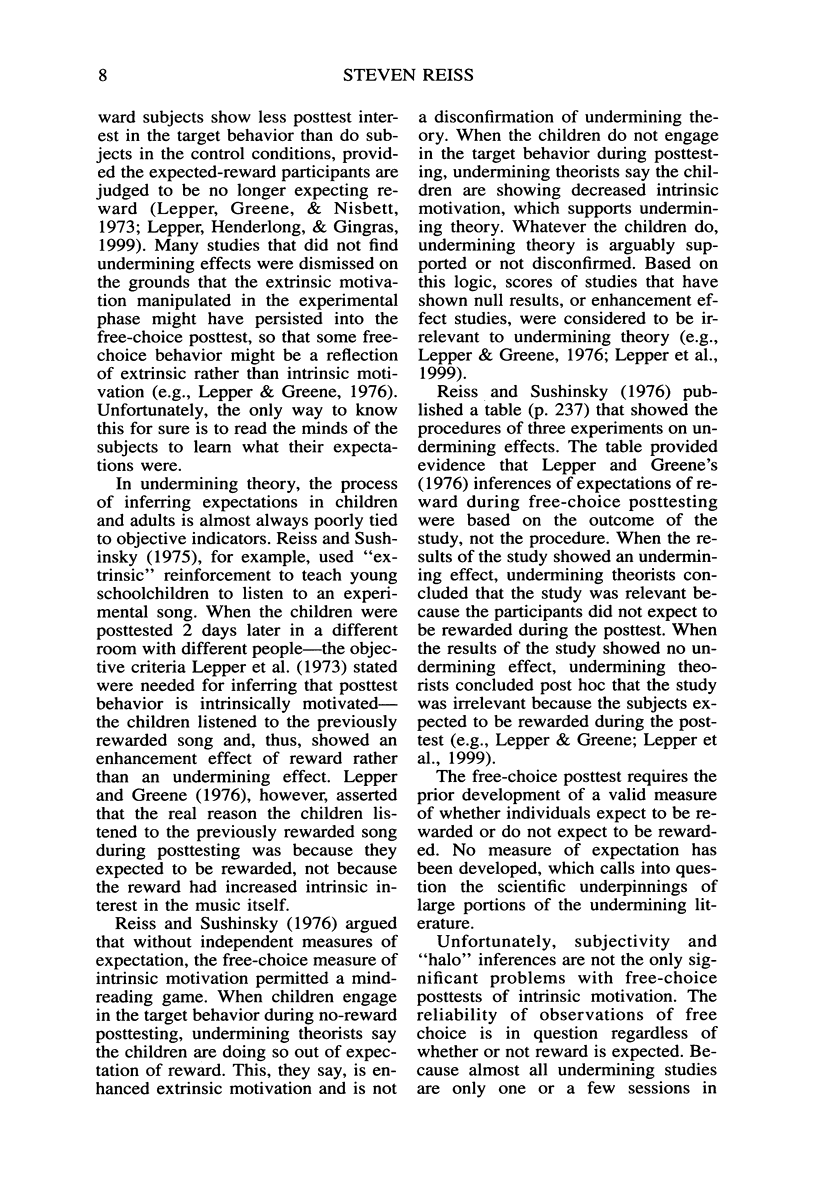
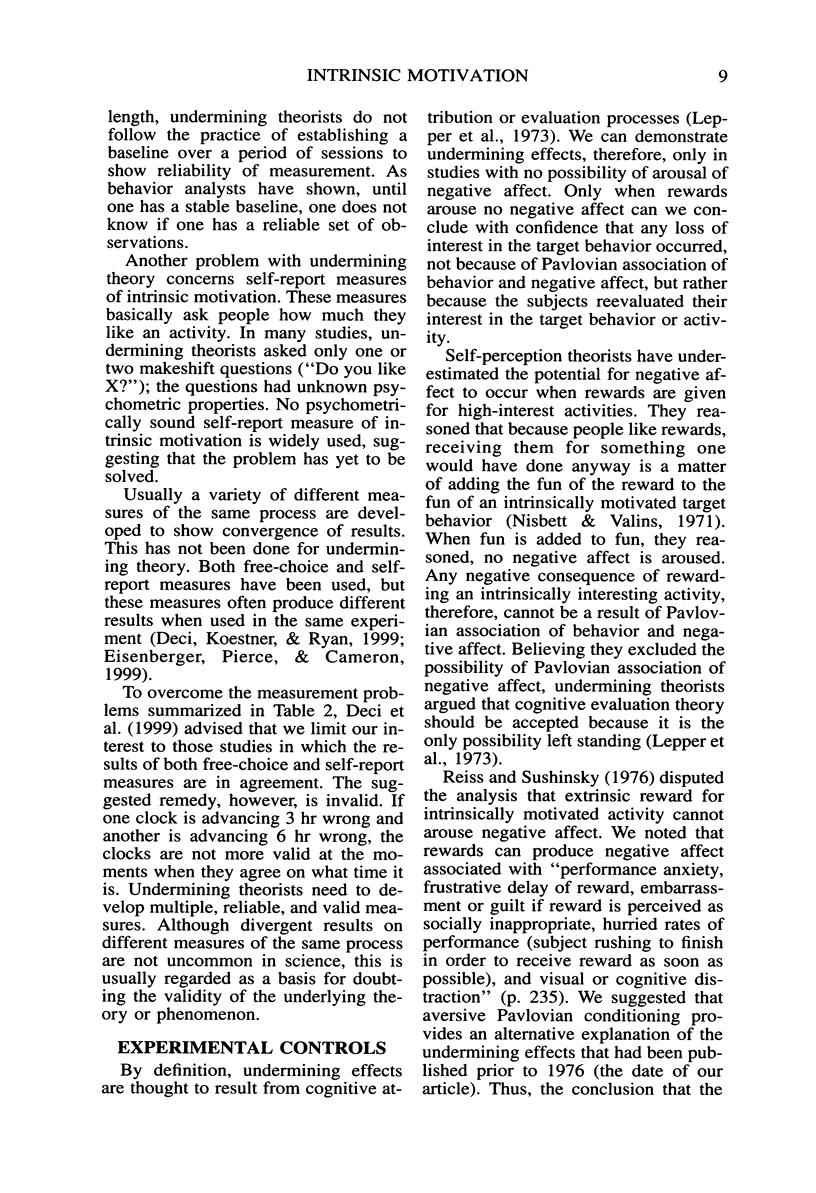
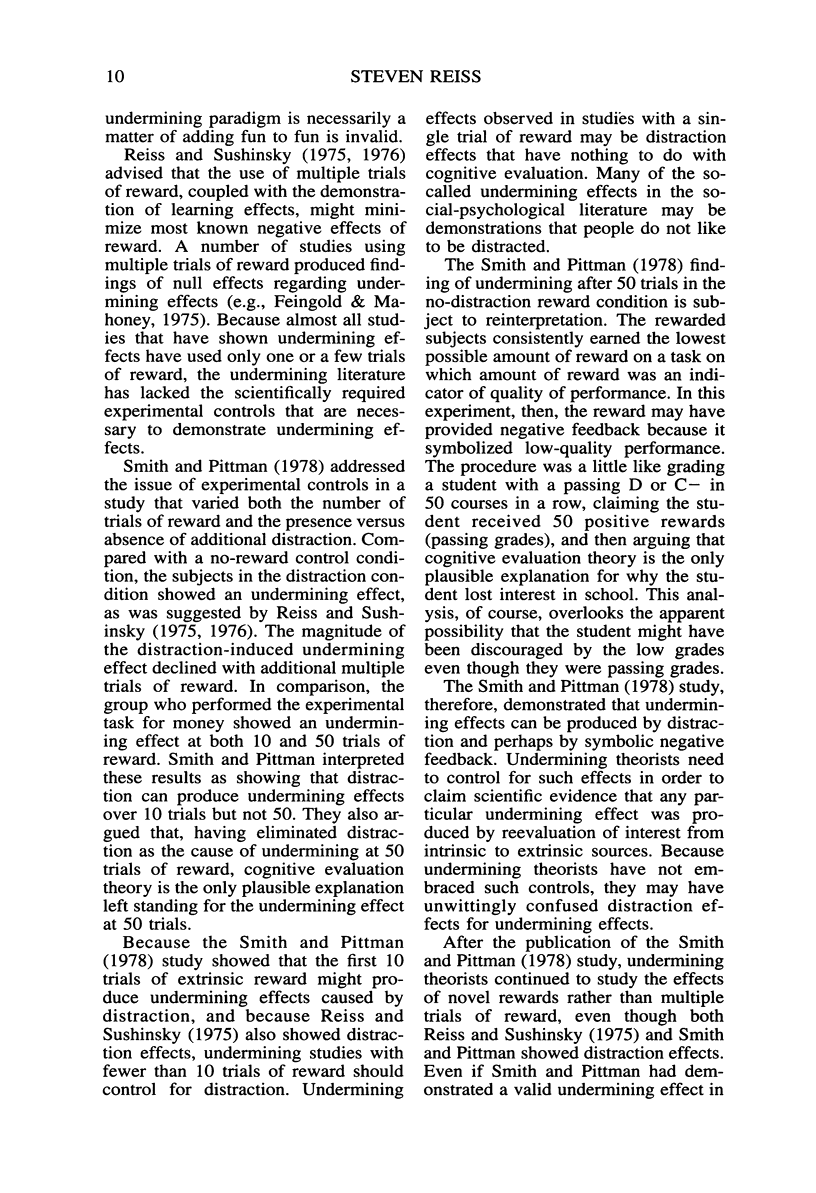
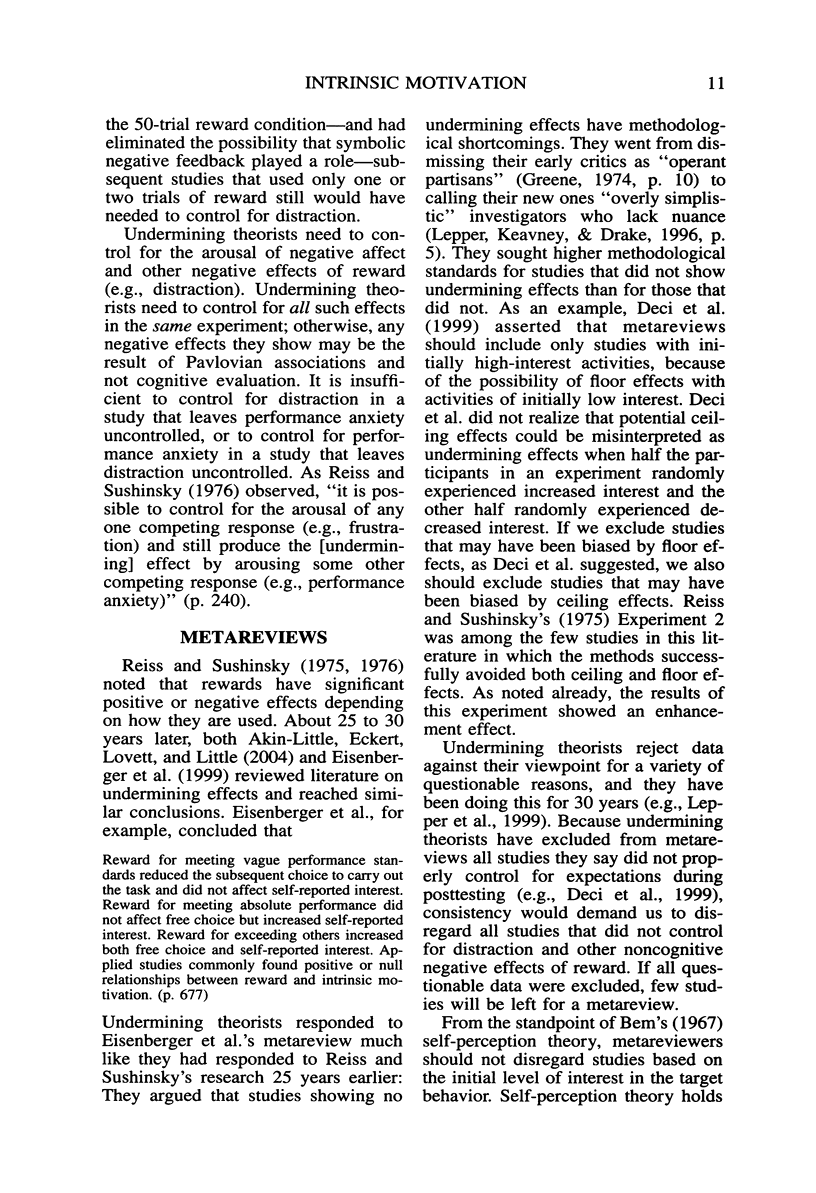
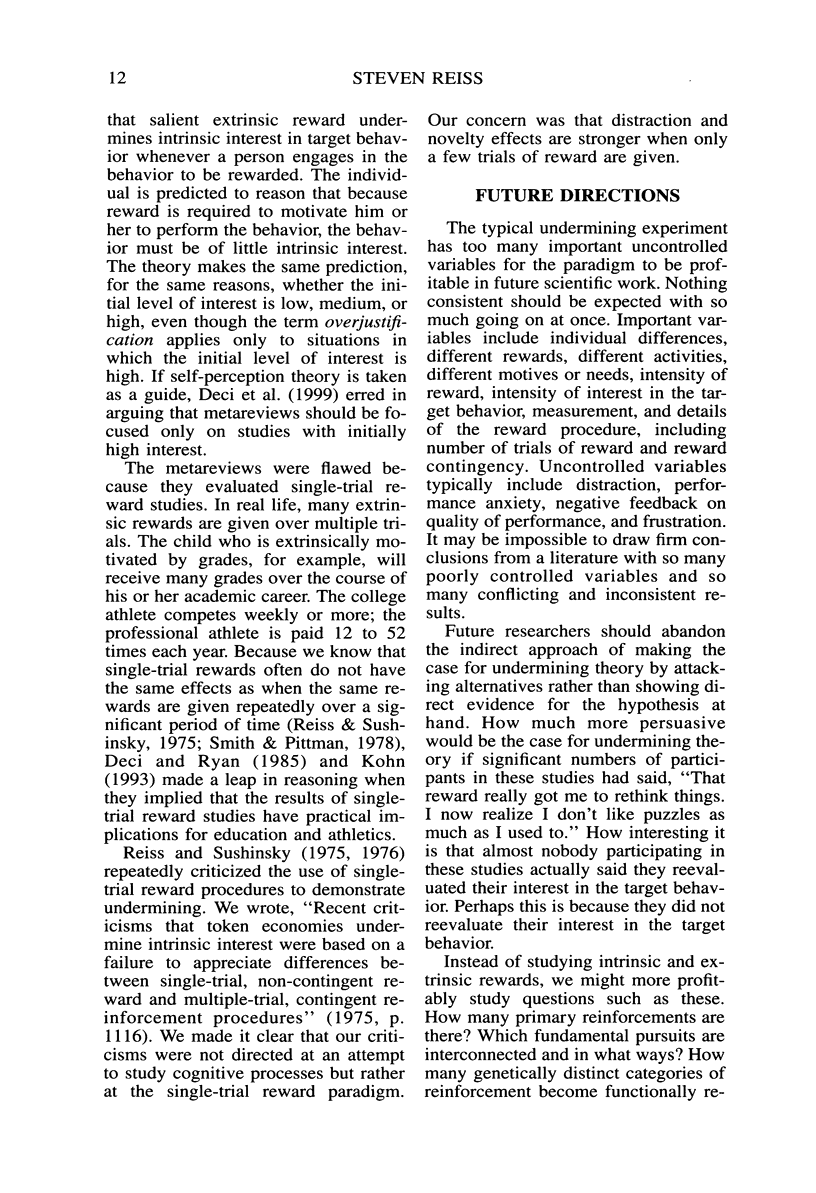
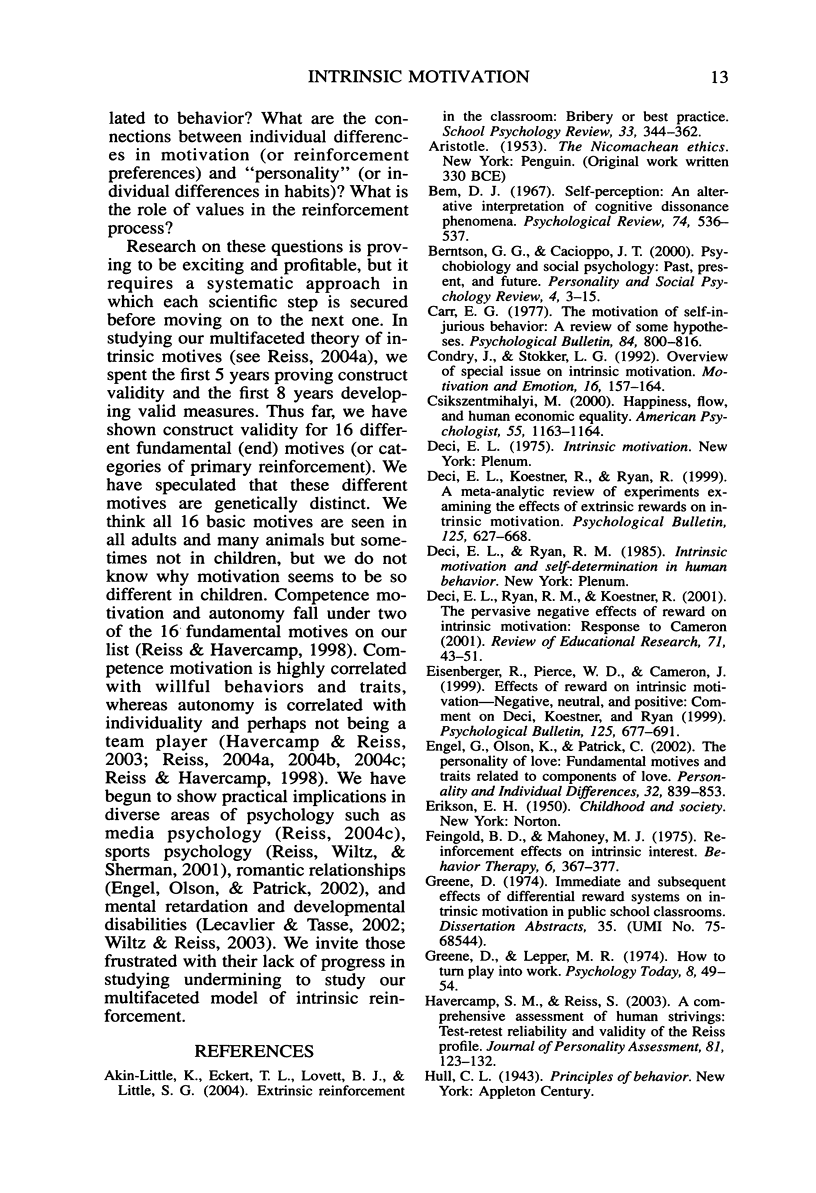
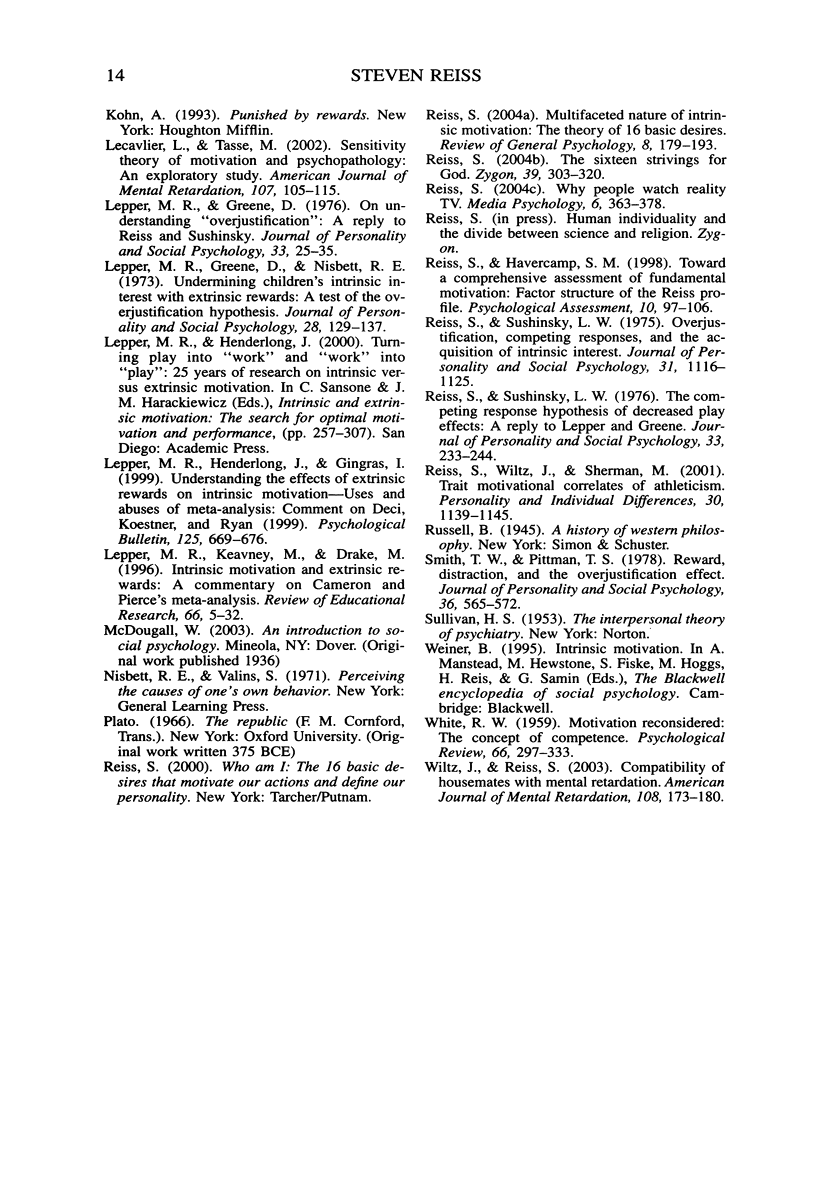
Selected References
These references are in PubMed. This may not be the complete list of references from this article.
- Berntson G. G., Cacioppo J. T. Psychobiology and social psychology: past, present, and future. Pers Soc Psychol Rev. 2000;4(1):3–15. doi: 10.1207/S15327957PSPR0401_2. [DOI] [PubMed] [Google Scholar]
- Carr E. G. The motivation of self-injurious behavior: a review of some hypotheses. Psychol Bull. 1977 Jul;84(4):800–816. [PubMed] [Google Scholar]
- Csikszentmihalyi M. Happiness, flow, and economic equality. Am Psychol. 2000 Oct;55(10):1163–1164. [PubMed] [Google Scholar]
- Deci E. L., Koestner R., Ryan R. M. A meta-analytic review of experiments examining the effects of extrinsic rewards on intrinsic motivation. Psychol Bull. 1999 Nov;125(6):627–700. doi: 10.1037/0033-2909.125.6.627. [DOI] [PubMed] [Google Scholar]
- Eisenberger R., Pierce W. D., Cameron J. Effects of reward on intrinsic motivation--negative, neutral and positive: comment on Deci, Koestner, and Ryan (1999) Psychol Bull. 1999 Nov;125(6):677–700. doi: 10.1037/0033-2909.125.6.677. [DOI] [PubMed] [Google Scholar]
- Havercamp Susan M., Reiss Steven. A comprehensive assessment of human strivings: test-retest reliability and validity of the Reiss Profile. J Pers Assess. 2003 Oct;81(2):123–132. doi: 10.1207/S15327752JPA8102_04. [DOI] [PubMed] [Google Scholar]
- Lecavalier Luc, Tassé Marc J. Sensitivity theory of motivation and psychopathology: an exploratory study. Am J Ment Retard. 2002 Mar;107(2):105–115. doi: 10.1352/0895-8017(2002)107<0105:STOMAP>2.0.CO;2. [DOI] [PubMed] [Google Scholar]
- Lepper M. R., Henderlong J., Gingras I. Understanding the effects of extrinsic rewards on intrinsic motivation--uses and abuses of meta-analysis: comment on Deci, Koestner, and Ryan (1999) Psychol Bull. 1999 Nov;125(6):669–700. doi: 10.1037/0033-2909.125.6.669. [DOI] [PubMed] [Google Scholar]
- WHITE R. W. Motivation reconsidered: the concept of competence. Psychol Rev. 1959 Sep;66:297–333. doi: 10.1037/h0040934. [DOI] [PubMed] [Google Scholar]
- Wiltz James, Reiss Steven. Compatibility of housemates with mental retardation. Am J Ment Retard. 2003 May;108(3):173–180. doi: 10.1352/0895-8017(2003)108<0173:COHWMR>2.0.CO;2. [DOI] [PubMed] [Google Scholar]


